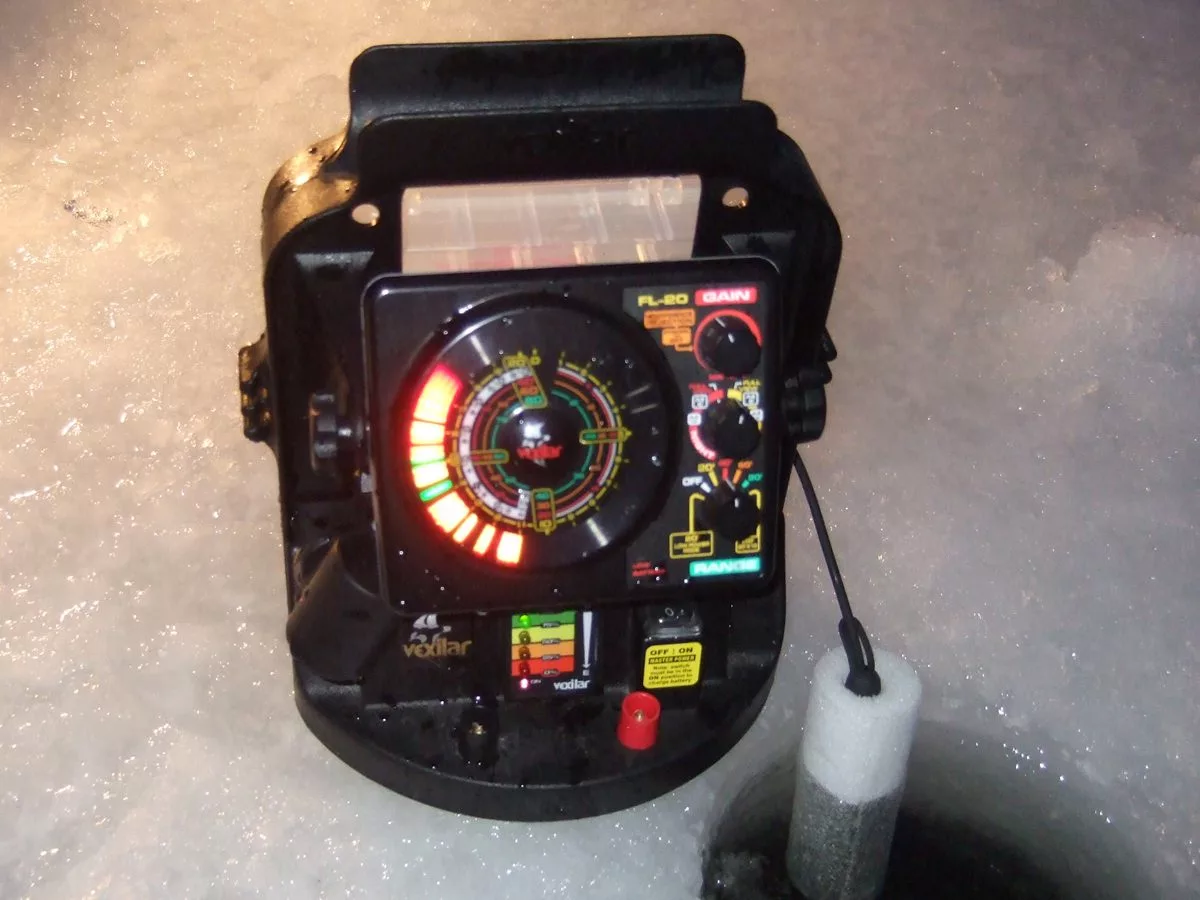
Utilize sonar of all stripes to gauge the mood of fish at midwinter and adjust presentations accordingly. Simonson Photo.
By Nick Simonson
The rush of first ice is in the rearview mirror, and that stretch of more challenging mid-winter fishing is underway. While late January and February mark the traditional seasonal slowdown in on-ice action in the upper Midwest, the midseason doldrums rarely prevent anglers from making their way out after fish. Heightened technology specifically designed for ice fishing is a primary reason why, even during the tough middle stretch of winter, many anglers can find more success than in past years and can still locate aggressive fish that rival the early season bite, or the one that comes at winter’s end. From a multitude of sonar offerings, cameras and more accurate GPS options, anglers have an electronic edge like never before.
Sonar Selection
With more sonar options than ever, there is a fish finder in everyone’s price range. From top of the line real-time options to an expanding used model market of sonar styles, a great deal of top end and affordable options exist. Sonar of any sort makes good fishing great and helps to eliminate slow fishing at midseason. Being able to punch a series of holes, find fish in an area and see how they react to a presentation on a graph gives clues as to location and mood and what presentation will set off a strike. Those stretches of unproductive ice can be eliminated when nothing shows down below and can be abandoned for the next area where hopefully more fish will be found. Knowing what – if anything – is going on below and how fish are responding to various efforts provides a clearer picture of what is happening at midseason.
Underwater Eyes
Additionally, a wide array of underwater cameras allows for a unique insight into clear waters and help with the establishment of fish moods. Having an eye under the ice will also help detect subtle bites, as many of today’s camera options provide high-definition resolution which can pick up even the tiniest inhale of a jig by a bluegill. At mid-season, being able to see bottom composition, forage options and remaining weeds will help provide a baseline as to where fish are holding in an area as the last remaining green stalks give way to winter and how the few food items left from summer’s smorgasbord are still bringing predators in. Putting it all together with a view of the underwater world can produce a spot-on-a-spot at midseason that can be as productive as those targeted at first or last ice.
Location Fixation
Finally, more accurate GPS technology than ever before is getting anglers back to that precise location faster than in past seasons. Having a hand-held GPS model or a receiver built into a sonar device has also never been more affordable and with advancement in the satellites serving those units, they’ve never been more accurate either. With lake map chips for sale and a variety of free downloadable state-specific programs available from wildlife management agencies, quickly getting to favorite spots and exploring new expanses is even easier.
While the angling action at this point in the season may slow simply due to the natural cycle and how fish react to the conditions below the ice, that doesn’t mean anglers have to throw in the towel. Those who persevere and are equipped to locate fish with these electronic advantages will most certainly find success on midwinter’s ice.
Simonson is the lead writer and editor of Dakota Edge Outdoors.
